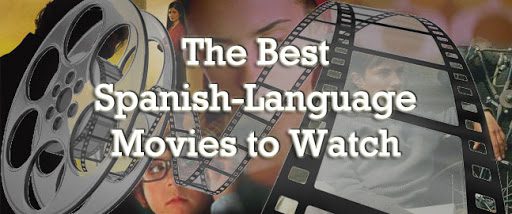One of the greatest omissions Spanish learners encounter is studying only from text books. One can never truly know the Spanish language without immersing into the culture, everyday conversations and the general “soul” of this widely-spoken language.
It is not always possible to travel to Spain, Mexico or Argentina (or any of the other Spanish-speaking nations). But what you can do for now – is watch a great Spanish film. The slang, local dialects and even the humour are portrayed in classic Spanish language films which are not going to be shown in any textbook.
Even online tutorials miss out on the all-important emotions that give the Spanish language that emphasis. You can see body language, facial expressions, fascinating scenery and real emotions. You will see how words of love and hate are expressed and emphasized.
It is possible to listen to Spanish songs and you may even get to know the words. However, a feature length film is a really dynamic way to get a greater understanding of the Spanish language. Being entertained as you learn also has a more positive effect.
Learning any language can be stifling and even boring. Especially when you have to study reflexive verbs and conjugate entire verb structures. Then learn how they alter in the past, present and future. Believe us, watching a film is a whole lot more entertaining and the Spanish you hear may even be easier for your brain to absorb, as you are loving the movie.
One movie that you might love is Like Water for Chocolate (1992). In Spanish it is Como agua para chocolate and it contains a great deal of emotion and high-octane drama about love, longing and romance.
Another great movie to look out for is a Latin-American classic The Motorcycle Diaries (2004) – in Spanish: Diarios de motocicleta. The story follows a road movie format of a young Che Guevara. He travels to several exotic locations and encounters many adventures along the way (not all of them pleasant).
The power of raw emotion and hardship is pretty much in evident as Guevara and his associate travel from Buenos Aires to Venezuela, to see the continent they had both been taught about in school. It is a biographical adventure with plenty of drama, outstanding backdrops of jungle, villages, open deserts and Gaucho culture.
If comedy is your thing try: El hijo de la novia or if you prefer hefty Spanish vocabulary try: Mar adentro. All these are great movies for learners of the Spanish language.
